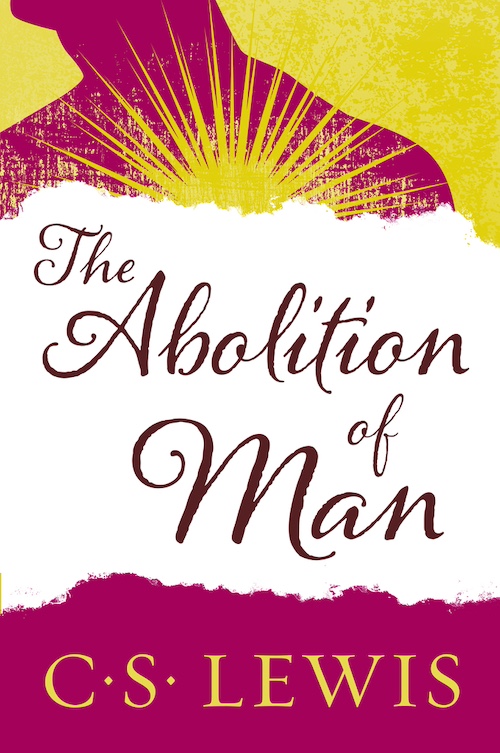
Many years ago, I had a conversation with philosopher and ethicist Gilbert Meilaender about the work of C. S. Lewis. As we were discussing why Lewis was such a compelling apologist, Gil said, “I think he’s not so much trying to argue anybody into thinking something as he is simply trying to understand what it would mean to believe something, through the enormous gifts he has for illustration and metaphor and story.”
Lewis’s imaginative skills were thus focused less on the mere credibility or plausibility of belief (which are the concerns of most apologists) and more on the ramifications of belief. “If the Gospel is true, here is how the world will look.” Even “belief” had a more comprehensive scope in his thinking than most apologists recognize. The Gospel wasn’t just a message about getting saved; it was a message of salvation in the context of a bigger story about the meaning of everything. It presupposed a cosmology and a rich anthropology. As in the Creed, Lewis’s defense of the faith began with a tacit but rich affirmation of the Maker of Heaven and Earth who made all things in a particular way, the shape of which His creatures would do well to honor.
As a great lover of stories, Lewis knew that Christianity had a big story to tell. He also was acutely aware that there were fatally misleading ways of telling the story about the world and all that therein is. The Screwtape Letters is such a powerful work because Lewis described so well how all of life looks from the viewpoint of a devilish tempter. In his fiction, many of his villains are comprehensively wrong, not just mistaken on this or that point of doctrine. The way they look at the whole of life is out of whack. In The Narnian, Alan Jacobs observes that Lewis had a shrewd eye for “what Marxists call ‘ideology,’ that is, the system of beliefs that are so taken for granted in a given culture that hardly anyone even notices that they are beliefs.”
In all of his writings, Lewis always presented Christianity as something that was true, and as something that should be embraced precisely because it was true (not because it was felt to be a ticket to happiness or safety). The Christian account of God and Creation and Man and Sin was the Way Things Really Are. So, as Jacobs observes, Lewis was profoundly troubled by the fact that “after being indoctrinated into a systematic disregard of truth and falsehood, people can find themselves unable to recognize the difference even when it is put before them plainly.”
Such fatal indoctrination comes through many cultural conduits, and Lewis damns them all at one time or another in his books: journalism, political rhetoric, advertising, bad literature. But he seems to regard the false indoctrination practiced by educators as the most insidious and pervasive. It was, Lewis makes clear, the shape of his education that made Mark Studdock (in That Hideous Strength) such a man of straw and so vulnerable to being corrupted.
Given Lewis’s concern about the disordering effect of misguided schooling, it is not at all surprising to read the somber epigraph to the first chapter of The Abolition of Man, a book whose subtitle identifies it as Reflections on Education. Lewis begins his scathing critique of a common mentality of modern educators by citing two lines from a 15th century carol, “Unto us a boy is born,” suggesting a Herodian quality in the teachers in question: “So he sent the word to slay / and slew the little childer.” The pedagogical practices under scrutiny amount to a slaughter of the innocents.
The Abolition of Man is a powerful tract defending the assumption that value judgments (in ethics, aesthetics, and everyday life) are tied to objective reality. It does not prove the reality of what Lewis calls “the Tao” (and, as he points out, others have called “Natural Law or Traditional Morality or the First Principles of Practical Reason or the First Platitudes”). Rather than offer proof for the Tao (which Lewis says would be impossible, since there would be nothing higher to appeal to in making such a proof), Lewis teases out what the world would look like (and what Man becomes) if the subjectivists are right. If all value judgments are expressions of mere feeling and preference, then humans are merely trousered apes.
Because feelings are so highly valued in modern culture, some Christians assume that the response is to train reason so as to resist the blandishments of emotion. Lewis strongly disagrees. “The task of the modern educator is not to cut down jungles but to irrigate deserts. The right defense against false sentiments is to inculcate just sentiments.” Education rightly ordered must properly train the sentiments, sensibilities, and affections of students. After all, “approvals and disapprovals are . . . responses to an objective order” and thus we should seek to align our emotions with the Way Things Really Are. A person so trained will understand that the chief end of a truly human life is to conform the soul to reality, not (as the modern mind assumes) to attempt to remake reality to fit our desires.
Subjectivism is one of the deep, dehumanizing lies of modern culture. It devalues emotion as well as reason, truth as well as tradition. Subjectivist assumptions prevent many unbelievers from becoming believers, and they deter many believers from living fully as believers. I think every Christian teacher, pastor, and parent should wrestle with The Abolition of Man and ask how teaching and the shape of everyday life should be altered if Lewis’s prophetic warnings are true.
This essay first appeared in the “Contours of Culture” column (Touchstone, September/October 2010).